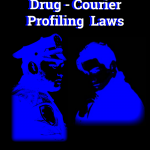Is this too difficult to imagine?
You’ve just been released from prison. You are struggling to become a productive member of society.
You’re looking for job, and trying to get your life on back on track.
So far, no employer has been willing to hire you, due to your criminal record.
You’ve sold nearly everything you own, including your car to pay outstanding debts, and to try and make ends meet.
Day after day you wait for the bus to take you to town so you can continue your job search.
Then one day, you are approached by a man while waiting for your bus. The man asks you if you will purchase $20.00 of crack cocaine. He offers to pay you $10.00 to do the deal.
You hesitate, and think that selling drugs again was the last thing you ever intended to do.
Weary, desperate, and hungry, you err in judgement and agree.
The man takes you to buy the drugs from an acquaintance. You buy the cocaine for him. You give him the cocaine, and he pays you.
Following the exchange of drugs and money, the man immediately arrests you.
You now face returning to prison, and serving 8 to 10 more years for selling illegal drugs while on parole.
The man who approached you at the bus stop was an undercover police officer. You were clearly entrapped.
But you will not have a chance to gain an acquittal based on the entrapment defense, without doing this one very important thing…
That is, if you wish to challenge the charges by utilizing the entrapment defense, you must admit to the substantial elements of the crime.
In simple terms, you will need to admit that you committed the criminal act for which you were charged.
You are confused by this. It goes against everything you understood about your 5th Amendment rights and protections against self-incrimination. So you do not admit to the crime.
But the fact is, it doesn’t matter how much police deception or inducement was involved. Unless you are prepared to formally admit to the substantial elements of the crime, either in testimony or stipulation, the entrapment defense will not apply.
You are convicted and sentenced to return to prison to serve 9 more years. Your freedom was short lived.
Not only is this scenario imaginable, but the the high court of Arizona recently heard a case with similar circumstances. This statutory requirement was affirmed in that case.
The Arizona Supreme Court held that the entrapment defense afforded under A.R.S. 13-206, is reserved for cases in which the defendant admits to the substantial elements of the crime.
In this article we examine the often misunderstood entrapment defense, and include the following featured topics:
- Overview of recent Arizona Supreme Court ruling in a cocaine case;
- 7 questions and answers regarding application of the entrapment defense;
- The requirements of making a valid entrapment claim in Arizona;
- The burden of proof for entrapment;
- Arizona entrapment law A.R.S. 12 – 206;
- 10 other drug crimes defenses besides entrapment;
- Criminal defense for drug charges in Phoenix AZ
Continue reading
 Arizona Criminal Defense Attorney Blog
Arizona Criminal Defense Attorney Blog


